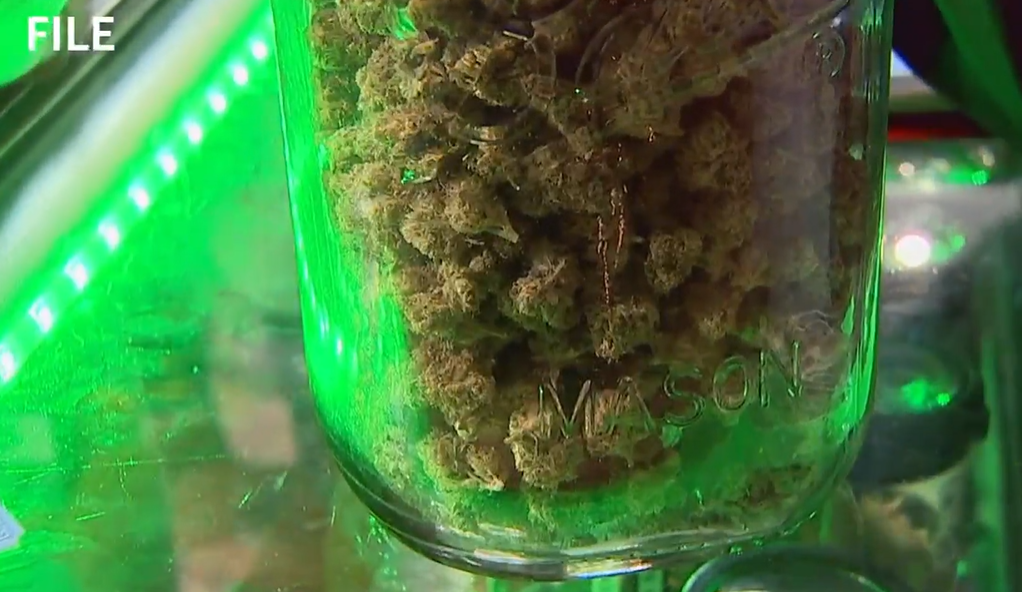Need assistance getting a cannabis business license? Schedule a Free Consultation

COLUMBIA, Mo. (KMIZ)
On Monday, the Missouri Department of Cannabis Regulation opened its second round of microbusiness applications.
According to the Department of Health and Senior Service, microbusinesses “are designed to allow marginalized or under-represented individuals to participate in the legal marijuana market.” To be eligible for a license an application needed to meet certain criteria. The application period lasts through Monday, April 29.
According to Cannabis.Mo.Gov, applicants for a microbusiness license need to meet one of following criteria:
- Have a net worth of less than $250,000 and have had an income below 250% of the federal poverty level, or successor level, for at least three of the 10 calendar years prior to applying for a marijuana microbusiness facility license; or
- Have a valid service-connected disability card issued by the United States Department of Veterans Affairs, or successor agency; or
- Be a person who has been, or a person whose parent, guardian or spouse has been arrested for, prosecuted for, or convicted of a non-violent marijuana offense, except for a conviction involving provision of marijuana to a minor, or a conviction of driving under the influence of marijuana. The arrest, charge, or conviction must have occurred at least one year prior to the effective date of this section; or
- Reside in a ZIP code or census tract area where:
- Thirty percent or more of the population lives below the federal poverty level; or
- The rate of unemployment is 50% higher than the state average rate of unemployment; or
- The historic rate of incarceration for marijuana-related offenses is 50% higher than the rate for the entire state; or
- Graduated from a school district that was unaccredited, or had a similar successor designation, at the time of graduation, or has lived in a zip code containing an unaccredited school district, or similar successor designation, for three of the past five years.
Jimi Poe was one of few people selected in the first round and said his life in the cannabis industry has come full circle because of it. Poe first began selling cannabis at the age of 17. Within three years he had established contacts in Mexico and was selling weed on the black market. But Poe says that is when things went crazy.
“I didn’t know any better. I didn’t have any parents or anybody support me or help me or guide me,” Poe said. “When I finally got in trouble I was like, I’m not going to live like this.”
At the age of 20, Poe said he sold 12 pounds of marijuana to an undercover cop and was sent to prison for 14 months. It was a moment that changed his life.
“When I first got in there they said ‘Hey, look at everybody in this room because 80% of you guys are going to come back here,” Poe said. “And I remember I was like, I’m not coming back here.”
Poe says that was the final time he has been in trouble. He now has a wife and family and the charge was expunged from his record. It is a crime that he says he spent 20 years trying to hide. But also one that made him eligible for Missouri’s Microbusiness license from the Division of Cannabis regulation years later.
When the state announced it were opening its first round of microbusiness licenses, Poe saw it as an opportunity to get his foot in the door. He said the application process was easy and only took a little more than half an hour to complete.
Once his application was approved, Poe had to go through the application eligibility process, which took several months. He was one of more than1,600 applications the Department of Cannabis Regulation received during the July 27- Aug. 10 application period. There were 144 selected in a lottery system. Each Missouri congressional district was awarded eight licenses: Two for dispensary licenses and four for wholesale facilities. Poe was trying to get one of the 16 dispensary licenses available.
On Oct. 2, 2023, the day of the lottery, Poe anxiously waited for an email from the state. But an email never came. By 5 p.m. he still hadn’t heard anything, so he decided to check the DCR website. When he looked he saw his lottery number was the first one drawn in the district.
“I went right outside and ran into my wife and was like ‘We won! We won!’ picked her up and spun her around and called my brother and called my mom,” Poe said. “It was a good night.”
Poe is now working to get his business up in running, but says is going to take some time. He did not have a business name on his initial application and had to submit paperwork for a name change. After brainstorming hundreds of potential names with his family he settled with “816 Dispensary”, named after the area code in Kansas City where he is building his business.
Under the state law can also only buy cannabis from another microbusiness wholesaler, which means he has to wait until the wholesale facilities that were awarded microbusiness licenses get up and running. Poe says he likely won’t be able to get the product until the end of the year. He is aiming for a July launch date but says the wait is frustrating.
“I could have had mine built by now. I’m just slowing down the process because I have no product that I can put on the shelves,” Poe said.
Dan Viets, a lawyer who received recognition from the National Organization for Reform of Marijuana Laws says that the state designed the system that way to help keep some of the microbusiness wholesalers in business.
“I think the reasoning behind that was that we wanted to make sure the microbusiness wholesalers didn’t get overrun and put out of business by the big businesses. We wanted to make sure that they had customers and could compete with the much larger cultivation corporate cultivation businesses.”
While the system was designed with good intentions several issues emerged in the first wave of applications.
Poe only put one application in. Others put in dozens some of which included ineligible growers from out of state. Because of this nine businesses had their licenses revoked including two Columbia businesses under the names of Frankenstein Eneny and Cannarooted LLC. The nine licenses revoked were added to the second wave of applications.
According to Viets, the state can’t limit business in Missouri to Missouri residents. However, some out-of-state applicants were abusing the system.
“What the state did find was that some of the applicants for microbusiness last year were using individuals who appeared to meet the qualifications as a front. They were not going to be the true owners of the business,” Viets said.
The designated contact for Frankenstein Enemy — Jeffrey Yatooma, according to records obtained by ABC 17 News — was listed as the contact for 11 businesses that applied for a microbusiness license at 700 Vandiver Drive. He was also listed as the point of contact for 11 potential businesses that could have been located at 2105 West Worley Street.
“I’ve met a lot of these guys [in the cannabis industry] over the last few months. These bigger guys have been able to put in like 50 applications, 100 applications, 500 applications,” Poe said. “I put in one.”
However, Viets says he would like to see the state issue more licenses.
“Fundamentally we believe that it’s in the best interest of consumers to have more competition,” Viets explained. “There is no need to limit competition artificially in the marijuana industry.”




